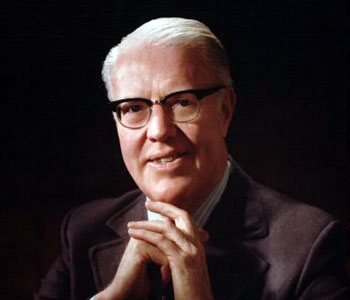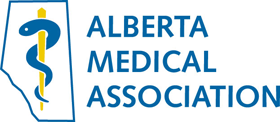Dr. Walter Campbell Mackenzie, 1909-78
May 21, 2014

Among his many achievements, Dr. Mackenzie oversaw the opening of the first medical research facilities at the University of Alberta.
As Dean of the Faculty of Medicine, doubled the numbers of undergraduates and greatly increased the number of residents.
Edmonton’s University of Alberta hospital was named the Walter C. Mackenzie Health Sciences Centre in his memory with the approval of Premier Peter Lougheed.
To say that Dr. Mackenzie was a truly gifted man is an understatement … Dr. Mackenzie’s lifelong efforts contributed significantly to the stature of Edmonton as a leading medical center recognized around the globe (University of Alberta Hospital Chair Peter Owen).
|
VIDEO Watch this video about Dr. Mackenzie from the Canadian Medical Hall of Fame. |
Early life
After completing his medical and residency training at Dalhousie University, the Royal Victoria Hospital in Montreal and at the Mayo Clinic before coming to Edmonton. A maritimer, he enlisted in the navy at the beginning of the Second World War and served on naval convoys in the Bay of Biscay and on the dangerous Murmansk Run along the coast of Norway.
Later assigned to “Stone Frigates” (naval installations on land), he was the chief surgeon at Esquimalt, St. John’s, Halifax and Sydney, becoming a Surgeon Commander before the war was over.
Arrival in Edmonton
As Dr. Mackid foresaw in 1912, the west would attract the kind of physician who “thinks boldly, acts boldly, by necessity first and then by conviction, and ultimately by habit.” Dr. Mackenzie was one.
Dr. W.C. Mackenzie twice chose to practice surgery in Edmonton — in 1938 and after the war in 1945. The young surgeon first came to Edmonton because it was then a frontier city — something that intrigued him — and because it had a medical school.
In 1938, he joined the J.O. Baker Clinic as a general surgeon. When he came back after the war, he practiced as an independent surgeon and joined the University of Alberta’s Faculty of Medicine as an instructor.
He later completed the difficult Fellowship of the Royal College of Physicians and Surgeons of Canada examination, and was appointed Professor and Head of Surgery at the U of A (1951-59).
In the early 1950s, Dr. Mackenzie oversaw the opening of the surgical medical research institute (SMRI) and the cancer-focused McEachern Laboratory, the first medical research facilities at the University of Alberta. Annual research grants would increase from $100,000 to 2.5 million by 1974.
During his deanship, the second longest at the University of Alberta (1959-74), he doubled the undergraduate MD entry to 108 and increased the number of residents from 44 to 225.
Educationally he “encouraged self learning from day one, systems teaching, earlier clinical exposure and a meaningful clerkship.”
In 1963 (the faculty’s 50th year), Dr. Mackenzie proposed a health science center for all health-related faculties. He believed that “when health services personnel were trained together, they will learn each other’s capabilities and will cooperate and work together.”
Propelled by the federal Health Resources Fund, Dr. Mackenzie secured funding for the Clinical Sciences Building (1968) and the Basic Medical Sciences building (1972).
Other achievements
He joined 25 international medical organizations, becoming president of 12 of them. He was the first Canadian president of the Royal College of Canada, the American College of Surgeons, and the International College of Surgeons.
He received four Honorary Fellowships, two honorary memberships, three honorary degrees and the Canadian Medical Association’s Frederic Newton Gisborne Starr Award as the outstanding physician in Canada.
In “retirement,” he studied road trauma and was the first to obtain government support for seat belt legislation. As the Director of Cancer services, he planned and opened the Baker Center in Calgary and substantially increased research funding for cancer.
A year after his death in 1978, Edmonton’s University of Alberta hospital was named the Walter C. Mackenzie Health Sciences Centre in his memory with the approval of Premier Peter Lougheed.
Find out more
- Dr. Walter C. Mackenzie (Canadian Medical Hall of Fame profile)
Get the whole story!
|
 Read the full profile of Dr. Mackenzie in Dr. Robert Lampard's "Alberta's Medical History"
Read the full profile of Dr. Mackenzie in Dr. Robert Lampard's "Alberta's Medical History"